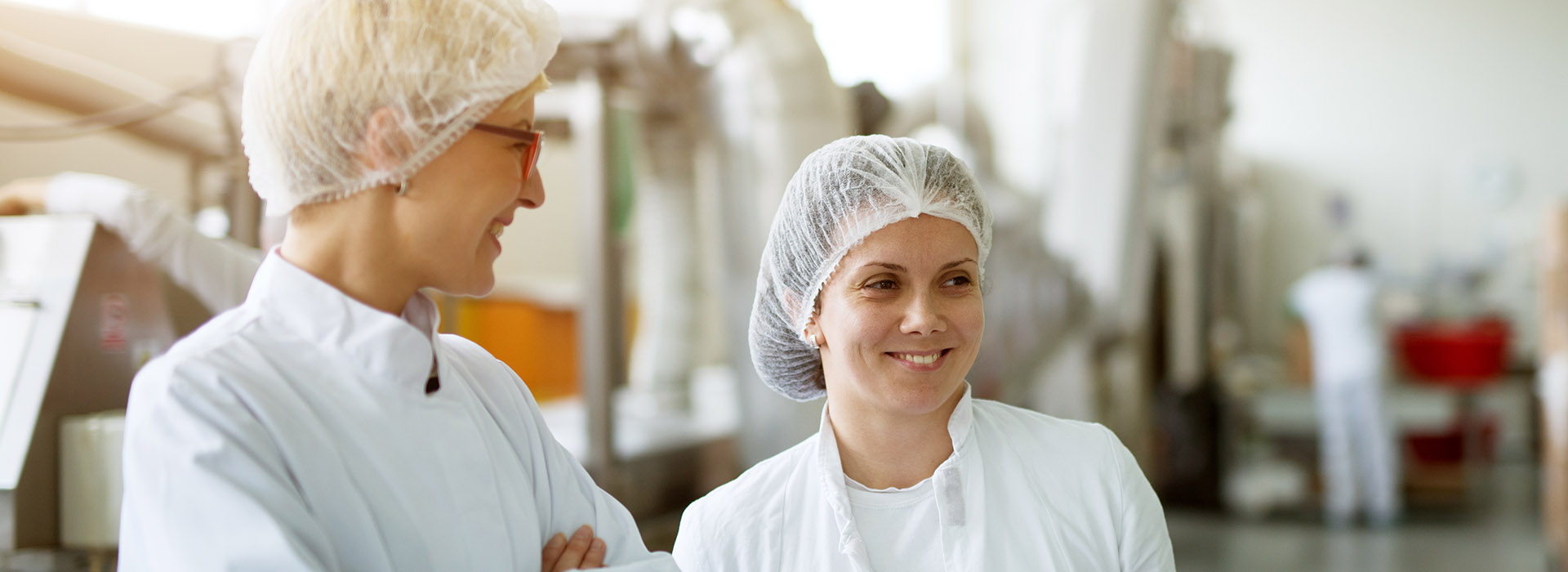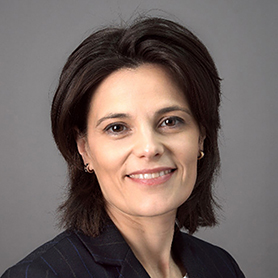Aude Menseau: Developing an agile health and safety culture
With a clear passion for safety in and out of the workplace, Aude Menseau, Health & Safety Director at Biscuits St Michel, explains the importance of agility and how company culture and leadership are crucial factors in driving safety initiatives forward.


Aude Menseau
Health & Safety Director at Biscuits St Michel
Q.
What inspires you about improving health and safety?
I started as a food safety director, which is a role that is never too far from health and safety. So I’ve always had a professional interest. I then got interested in the policy side and how they were written and conveyed to employees. Linking up these objectives achieved some substantial improvements, so I was given the resources which has enabled me to develop a much more robust health and safety culture. From a personal perspective, I can also track this interest back to the fact that I see health and safety as something that does not remain within the walls of an office, a factory or indeed a home. It’s something we need to focus on wherever we are; we need to live it.
Q.
What inspires you about improving health and safety?
I started as a food safety director, which is a role that is never too far from health and safety. So I’ve always had a professional interest. I then got interested in the policy side and how they were written and conveyed to employees. Linking up these objectives achieved some substantial improvements, so I was given the resources which has enabled me to develop a much more robust health and safety culture. From a personal perspective, I can also track this interest back to the fact that I see health and safety as something that does not remain within the walls of an office, a factory or indeed a home. It’s something we need to focus on wherever we are; we need to live it.
"Developing a health and safety culture that is agile and responsive is also essential, but it has to have leadership backing."
– Aude Menseau, Health & Safety Director at Biscuits St Michel
Q.
A robust health and safety culture is vital. What do you consider the essential ingredients?
In the food and beverage sector, instructions are an important part of daily life. Simultaneously, we also need to train employees to recognise danger and be confident in their ability to take independent actions continually and consistently. It’s important to establish an environment for independent thinking. It’s not about telling employees to follow safety rules; it’s about convincing them that their actions make a difference. Good communication is vital to achieving engagement and improving employees’ responsibility for health and safety issues. Developing a health and safety culture that is agile and responsive is also essential, but it has to have leadership backing. If there is no backing from top management, then efforts to improve health and safety are marginalised.
Q.
What are the key learnings of dealing with the COVID-19 crisis?
Company culture certainly helped provide the mindset to navigate the crisis. When COVID-19 arrived, we could lean on our agility to adopt measures ahead of the curve. Communication at the top level also played a vital role. We implemented a programme of discussions with unions and employees delivered by leaders and held daily on the shop floor to ensure that everyone’s health and safety concerns were addressed. As an exercise in crisis management, the feedback was highly positive, and we were held up as industry role models to help guide similar companies to navigate the process. As we gradually come out of the pandemic, I think emotional wellbeing will be one of the critical business issues companies will need to tackle in the future.
"It’s not about telling employees to follow safety rules; it’s about convincing them that their actions make a difference."
– Aude Menseau, Health & Safety Director at Biscuits St Michel
Q.
How can we develop a more sustainable health and safety culture?
Leadership support is essential in developing a health and safety culture that is sustainable. Without this support, you can’t create the right culture to understand the importance of safe working practices and how to react. Communicating the benefits of safe working practices in a way that people can understand and visualise is a powerful trigger for behavioural change. It’s then a question of trusting in people’s ability to take independent action to remain safe. This trust was demonstrated during the COVID-19 crisis and is something we all need to continue to encourage. It’s also important that any safety programme engages with the supply chain so that health and safety standards and needs are understood. By keeping all stakeholders in the loop, we build a fairer and more sustainable health and safety programme for all.
Q.
How can we encourage new talent to consider a role in health and safety and what are the key skill requirements?
The tools that we use in health and safety will be familiar to professionals in other industries. So performance management, communication, research and training; these are all transferable skillsets that can add value. As we have seen with COVID-19, the barriers between our professional and personal lives have become more inter-dependent and fluid. Whereas before we may have treated the workplace as a different environment requiring different skills, the pandemic has taught us that being caring and compassionate are, in fact, characteristics that are needed in the workplace, even more so in health and safety. Health and safety is not just about key performance indicators, it’s about human value and conviction and, while we may associate the sector with traditional male-dominated industries, it’s gradually changing. As health and safety broadens out to take in psychosocial risk and sustainability factors, so too does the need for new talent and different voices. A broader mix of views based on gender, ethnicity and social background will be a welcome and necessary part of strengthening the health and safety sector in the future. It’s a role that is as rewarding as you want to make it, and I’d encourage others to come on board and help make the world a safer place!
"Health and safety is not just about key performance indicators, it’s about human value and conviction and, while we may associate the sector with traditional male-dominated industries, it’s gradually changing."
– Aude Menseau, Health & Safety Director at Biscuits St Michel